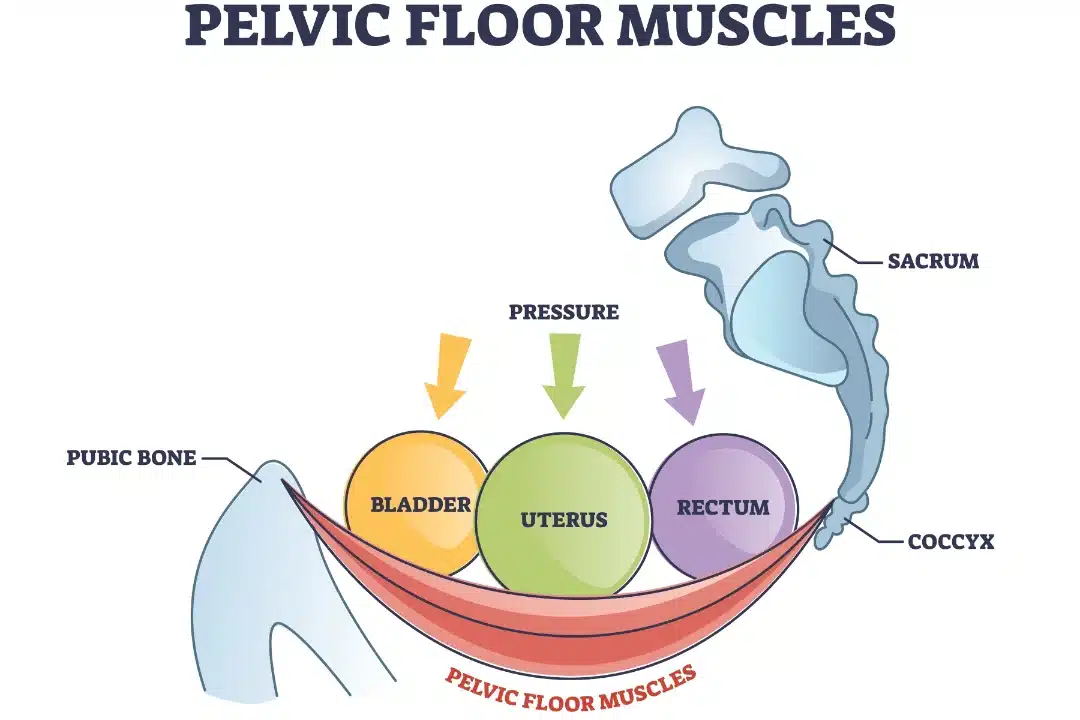

Pelvic floor disorders are a group of conditions that affect the muscles, ligaments, nerves and connective tissue in the pelvic region. These disorders can affect both men and women, and include conditions such as pelvic organ prolapse and urinary/ bowel dysfunction such as urinary incontinence.
Pelvic floor disorders can have a significant impact on a person's quality of life and require medical attention for prompt diagnosis and proper treatment.
Giving birth can indeed put significant strain on your pelvic floor muscles, which in turn leads to damage and weakness.
The process of childbirth, particularly vaginal delivery, can have a sizable impact on the muscles, ligaments, nerves and connective tissue in the pelvis.
Risk factors that put women at higher risk of pelvic floor dysfunction include:
Fortunately, not every woman who has undergone childbirth will go on to develop pelvic floor disorders/weakness; pelvic floor exercises (Kegels) can improve the state of the pelvic floor following delivery, although in some women, the pelvic floor weakness can persist and ultimately require treatment to improve their quality of life.
Although there have been studies[1] that show a lower incidence of pelvic organ prolapse for women who delivered exclusively through caesarean sections versus women who delivered vaginally, having a caesarean section does not guarantee that you will never suffer from pelvic floor weakness.
One also needs to take into account the strain on the pelvic floor muscles over the 9-month pregnancy journey, the numerous surgical risks of having a caesarean section, including:
It is recommended that the decision on one’s mode of delivery (whether via vaginal birth or caesarean section) be individualised and discussed with your obstetrician, taking into account both maternal and fetal factors.
The pelvic floor muscles can return to supporting normal pelvic functions after birth, but this depends on a number of factors such as:
Physical therapy and exercises specifically targeting the pelvic floor are helpful[2] in strengthening the weakened pelvic floor muscles following childbirth, although it is important to note that this takes time and consistent effort.

If you feel that you may be suffering from a weak pelvic floor, you should seek guidance from a healthcare professional who specializes in pelvic floor rehabilitation.
Having a strong pelvic floor may not specifically help you with the childbirth process, but can certainly counter the strain exerted on your pelvic floor from the growing baby throughout the pregnancy, and minimize the risk of pelvic floor damage sustained during childbirth - this translates to you having a lower risk of experiencing urinary/faecal incontinence as well as pelvic organ prolapse both in the short- and long-term.
Symptoms of a weak pelvic floor can range from woman to woman - in some cases, it can manifest in involuntary urinary/faecal leakage, feeling pelvic heaviness or even a lump in your vagina.
The good news is that most of these symptoms will improve and/or resolve with time so there is no need to panic - just as you took 9 months to nurture a baby, do remember that it is equally important to give your body some time and breathing space to go back to its pre-pregnancy state.
Do engage your pelvic floor muscles regularly by doing Kegel exercises, and if you still feel that you may be suffering from a weak pelvic floor after some time, you should seek guidance from a healthcare professional who specializes in pelvic floor rehabilitation who can do a proper pelvic examination and determine the degree of pelvic floor dysfunction, if any.
Do you have any questions about pelvic floor dysfunction? Feel free to contact me.